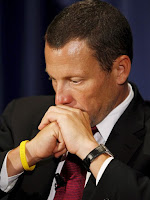Wells Fargo, one of the largest banks in America, was fined
$185 million for the company’s fraudulent selling
practices. A Wall Street Journal article1
reports, “Federal regulators announced that Wells Fargo opened as many as two
million deposit and credit-card accounts without customers’ knowledge.” Many former employees of the bank attribute
the widespread fraud to the incentive structure and the pressure received from
managers to reach the company’s ambitious sales targets.
Wells Fargo has been envied by its competitors for its high
return on equity, with greater relative profits than other leading financial
institutions such as J.P. Morgan. This
success is a result of the focus on cross-selling more products (i.e. different
financial services) per customer, a strategy it has faithfully followed since
1999.
However, some managers’ fierce dedication to this strategy led
many lower level employees to create dummy accounts. Sales progress was closely monitored,
requiring updated reports several times a day. Not meeting your targets was not something to be taken lightly, as many
lower and mid-level managers lost their jobs due to their inability to consistently
achieve their goals.
The account
representatives and account managers also felt immense personal pressure to
achieve sales goals due to the monetary incentives attached to their
targets. With low base salaries those
bonuses became very significant and highly desirable. A Harvard Business Review article3
explains how this type of incentive structure entices employees to make minor
ethical compromises which then escalate and spread from there. The article reads:
“Consider the following sequence: A bank account manager, under pressure to make a sales goal to receive his bonus, pushes a customer to add a credit card, even though the account manager knows it’s not in the customer’s interest. Still short of the goal, the account manager asks his friends and family to open accounts. (The accounts are to be closed shortly thereafter.) With the goal still not achieved, the account manager opens accounts without asking customers and transfers a small amount of money. (The accounts are closed shortly thereafter and the money is transferred back.) As soon as the account manager gets away with the first unethical act, it’s not a big step to the fraudulent ones. The justification moves from ‘it’s legal’ to ‘no one is harmed’ to ‘no one will notice.’ When such practices are tolerated, they escalate in severity and spread throughout the organization.”
Wells Fargo’s CEO, John Stumpf, accepted full responsibility
in his congressional hearing last week.2 Over the past five years
the bank has fired 5,300 employees for their involvement in fraudulent
practices and has hired consultants from PriceWaterhouseCoopers and Accenture
as well as several law firms to investigate the situation. However, it seems as though all that effort
was too little, too late.
Mr. Stumpf has received a lot of heat for this scandal,
including requests for his resignation and calls for top executive’s
compensation to be paid back to those negatively affected. Some have even questioned his competency as
the CEO of such a large bank. The WSJ
article1 previously mentioned goes on to state, “In the 2010 annual
report, Mr. Stumpf said he often was asked why Wells Fargo had set a
cross-selling goal of eight retail banking products per customer. “The answer
is, it rhymed with ‘great,’ he wrote. ‘Perhaps our new cheer should be: ‘Let’s
go again, for ten!’”
The bank said it will “scrap all product-based sales goals
in its retail branches starting January 1.”1 It is unclear why they are waiting until next
year to implement this change aimed to alleviate the pressure experienced by
employees that led them to these illegal practices. Hopefully this scandal will help other
companies see more clearly that extreme commitments to aggressive goals can
potentially lead to fraud.
1. http://www.wsj.com/articles/how-wells-fargos-high-pressure-sales-culture-spiraled-out-of-control-1474053044
2. http://www.wsj.com/articles/wells-fargo-ceo-stumpf-i-accept-full-responsibility-for-unethical-sales-practices-1474326173
3. https://hbr.org/2016/09/wells-fargo-and-the-slippery-slope-of-sales-incentives










